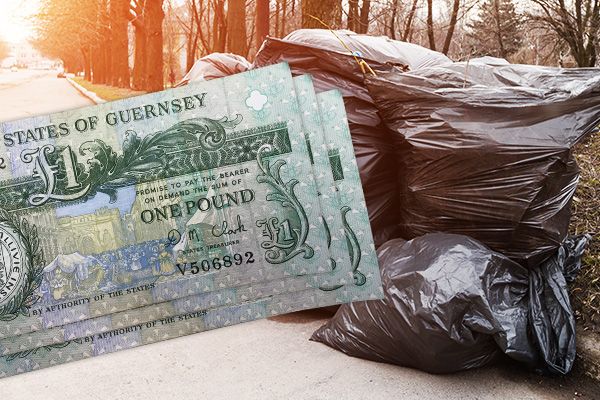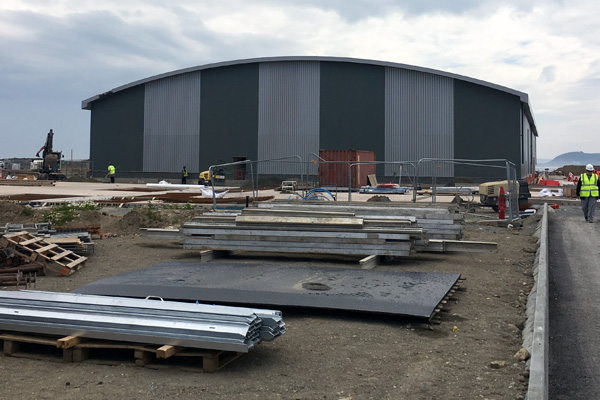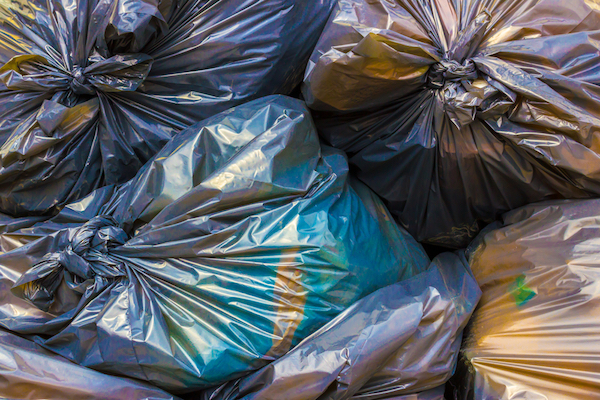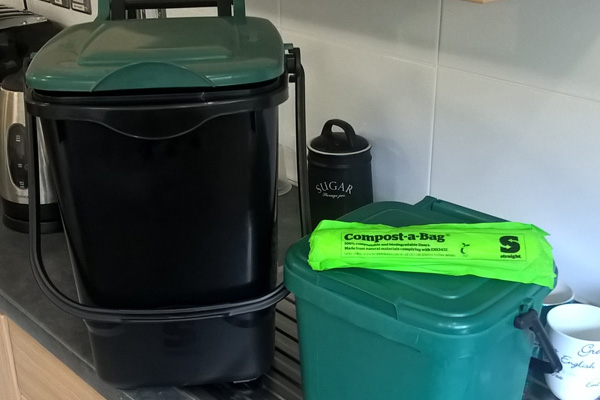

With days to go before the new system of waste collections are launched across Guernsey, with some pockets of resistance still expected, the States have gone ahead and signed the contract which will see our waste end up in Sweden where it will be incinerated.
It was announced over the Bank Holiday weekend that a contract has been signed with "one of Europe’s leading waste exporters, which will see material from Guernsey sent to a high efficiency heat and energy recovery facility."
Geminor UK, which has contracts with more than 70 treatment facilities in Europe, will start exporting the island’s waste from October - shipping it first to the UK and then on to Sweden along side waste from the UK.
The company has been asked to manage "between 20,000 and 25,000 tonnes of processed waste a year" with an initial deal for three years, with the option to extend it until 2023. It already handles much larger quantities having exported around 1⁄2 million tonnes of processed waste - known as refuse derived fuel (RDF) - from the UK and Ireland in 2017.
Richard Evans, Deputy Managing Director of States Trading Assets, said the length of the contract was chosen to maximise future opportunities.
“We had an option to enter into a longer term agreement on the same terms. However we have decided on an initial three years, with the option to extend this to 2023, because that gives us an opportunity to go back out to the market in the next few years."
The contract includes all transport arrangements from Guernsey's new waste transfer station at Longue Hougue through to its final destination. It will be shipped via the UK, using Geminor’s existing logistics network.

Pictured: The new waste transfer station at Longue Hougue during its construction
The waste taken from Guernsey will be shipped to a high efficiency energy recovery facility at Jonkoping, Sweden. Any materials left after processing, commonly known as fly ash and bottom ash, will be dealt with by the operator of the treatment facility.
The path to signing this contract has been a long one, and not easy at times for the politicians and civil servants behind the waste strategy.
Geminor was selected following "a competitive tender process, which also attracted a bid from Jersey. The company’s proposal was the cheapest and, despite the longer travel distance, also scored highest on the environmental assessment. That is because the Jonkoping plant is larger than the one in Jersey and more energy efficient."
Both the Swedish and the Jersey plants produce electricity, but the Swedish facility captures heat from the process and uses it to provide district heating which is then distributed to homes and businesses in the vicinity through a dedicated network of insulated underground pipes.
It is said that Guernsey will benefit from the energy recovered, even though the electricity and heat will all be used in Sweden, because the plant operator receives income from these that offsets its processing costs, meaning the price to deal with Guernsey’s waste is lower than it would be if no energy was recovered, or a smaller, less efficient facility was used.

Pictured: Guernsey's "black bag waste" will be shipped off island under the new strategy, once all recyclable materials and food waste has been stripped out by households
By signing the contract which will see the island's waste shipped to Sweden, Guernsey will help the Scandinavian country meet its long term requirement for waste to fuel its power and heat generation network. According to the Swedish Waste Management Association, more than 1.4 million tonnes were imported in 2014, primarily from Norway, the UK and Ireland. Geminor forecasts annual demand increasing to two million tonnes a year by 2020.
States Trading Assets also said the company’s "multiple contracts with other European operators also provide several back-up options, should the Jonkoping plant be unavailable due to routine or unscheduled shutdown."
Mr Evans said, “Geminor is one of Europe’s leading RDF exporters, and already deals with nearly half a million tonnes a year from the UK and Ireland. They have the expertise we require, and we will be benefitting from their established transport and logistics network. They also have contracts with dozens of processing facilities, which provides excellent resilience for the island.”

Pictured: As part of Guernsey's new waste strategy, households are asked to collect food waste which will be shipped off island for treatment separately to black bag waste
The Geminor contract does not include segregated food waste, which households have been asked to start collecting in newly provided bins ahead of the new waste strategy being launched on 2 September. From then, the food waste stored in the black caddys will be collected separately from households and it will be processed on island, before being shipped in tankers to the UK for treatment under an entirely separate export agreement.
This will also recover energy, but using a process known as anaerobic digestion. That does not involve incineration, and is described as "more efficient for this material."
Pictured: All rubbish collected from households and businesses across the island will be taken to the newly constructed facility at Longue Hougue where recyclables, food waste and non recyclable waste will be treated separately
The new waste strategy comes into force on 2 September with leaflets being sent out to every household advising people of when to put their rubbish out and which collections will take place when. Each residential property should have received a glass recycling bag, a small food caddy and a larger one along with information on how to use them and the strategy itself.
The new charges for the waste strategy - which include an £85 per year charge for each household along with a £2.50 sticker charge for black bag collections will come. into force in January 2019.
Comments
Comments on this story express the views of the commentator only, not Bailiwick Publishing. We are unable to guarantee the accuracy of any of those comments.